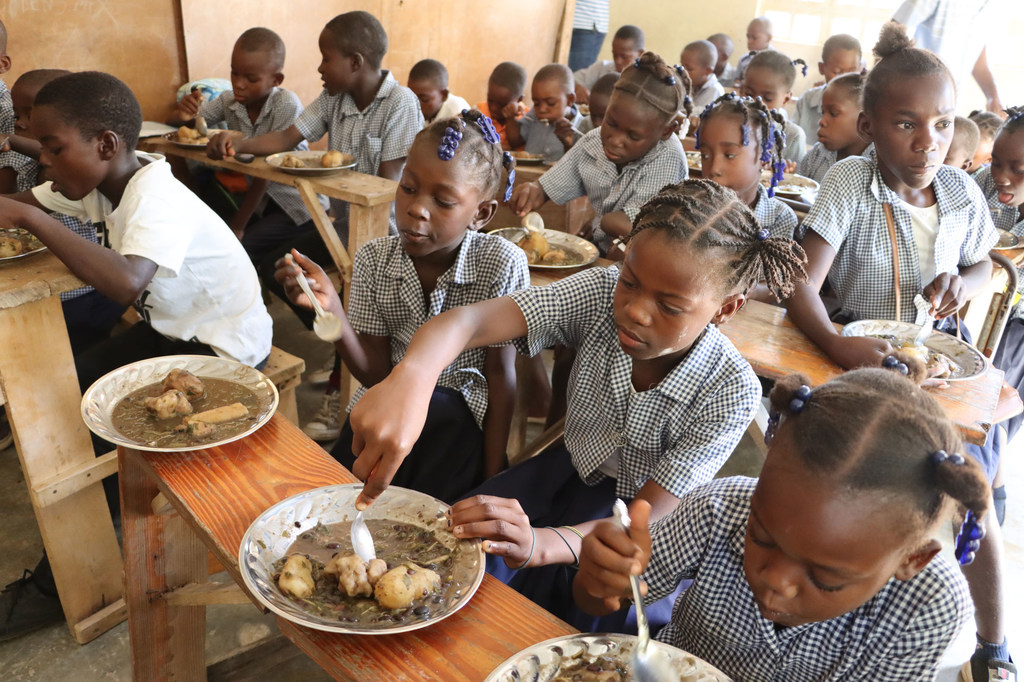As Haiti is hard hit by gang violence, the World Food Program (WFP) has reported that it has rapidly expanded its food aid, reaching over half a million people since the current crisis began in March this year.
WFP reaches vulnerable communities with food distributions, including hot meals for people living in temporary shelters in the capital Port-au-Prince, cash disbursements and school meals, says a press release.
Jean-Martin Bauer, WFP Country Director in Haiti, said that the capital, Port-au-Prince, is now experiencing levels of malnutrition usually only found in war zones. According to the WFP, the price of a food basket in the city has risen by 27% since January, forcing residents to skip meals.
“When violence is on this scale, everything stops. If people can’t work, they won’t have anything to eat – it’s as simple as that.“, said Mr. Bauer. “I’ve always been used to seeing high rates of malnutrition in remote and isolated areas,” he added. “But here in Haiti, the highest rates of global acute malnutrition are in the capital, and that was before any of this happened.”
For its part, the UN Office for the Coordination of Humanitarian Affairs(OCHA) pointed out that gang violence is disrupting access to healthcare for Haitians in Port-au-Prince. Haiti’s State University Hospital has been closed since March 30, while the University Hospital of La Paix, the largest public hospital in operation, is overwhelmed. Staff and ambulances also have difficulty gaining access to areas controlled by these armed gangs.


